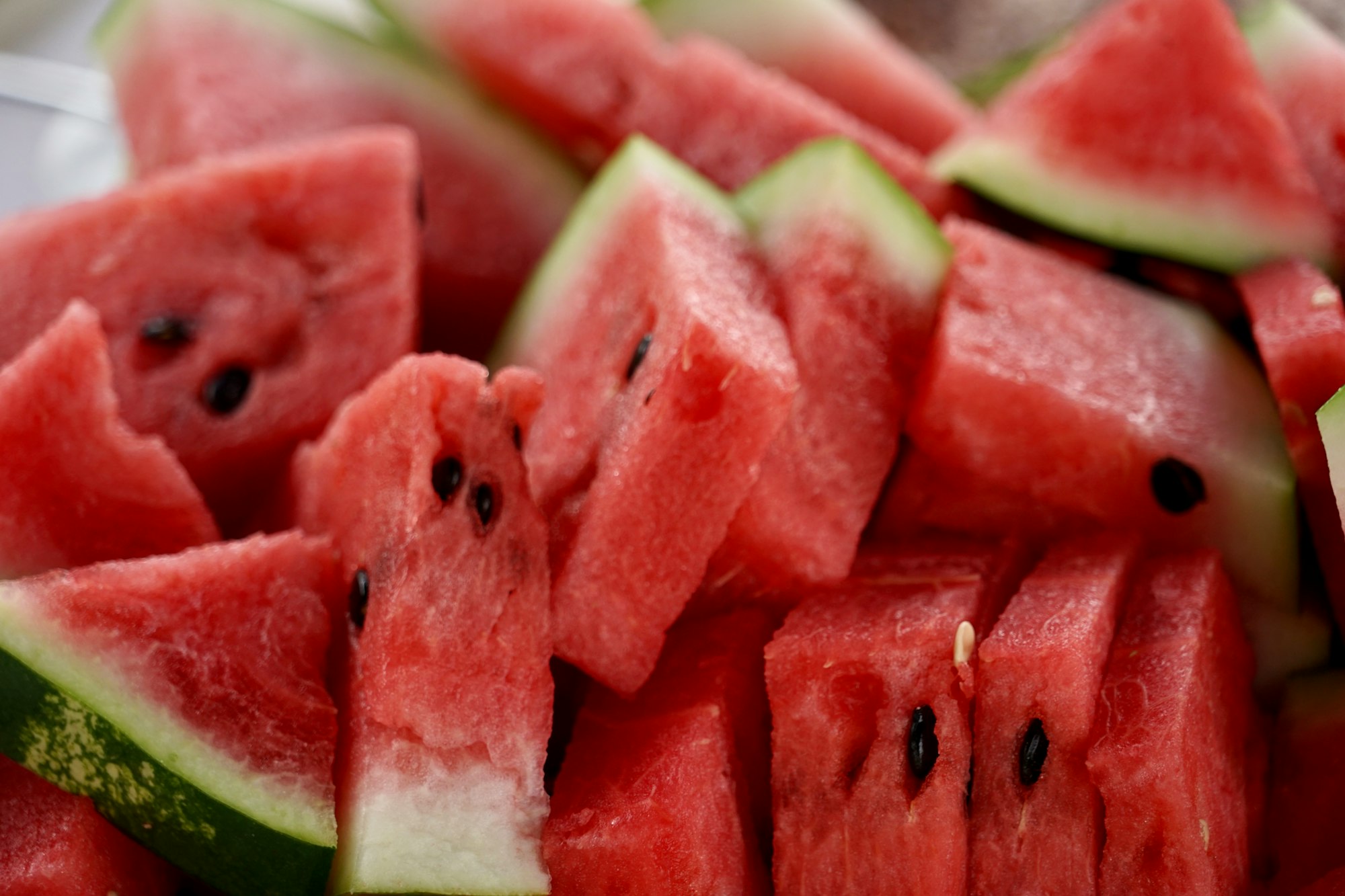Curious about whether your Maltese furry friend can indulge in the juicy sweetness of watermelon? Look no further! In this article, we'll get to the bottom of whether watermelon is safe and beneficial for Maltese dogs to eat.
Watermelon, with its high water content and refreshing taste, may seem like a tempting treat for your fluffy companion. But is it safe? Can Maltese dogs enjoy this summertime fruit without any negative side effects?

We'll explore the nutritional benefits of watermelon and examine its potential risks for Maltese dogs. From its vitamins and minerals to its potential impact on their digestive system, we'll leave no stone unturned.
So whether you're looking to share a slice of watermelon with your four-legged friend or simply wanting to satisfy your curiosity, keep reading. By the end of this article, you'll have a clear answer on whether Maltese dogs can safely indulge in this juicy fruit.
Can dogs eat watermelon?
You might be wondering if dogs, in general, can eat watermelon. The good news is that watermelon can be a healthy and safe treat for many dogs, including Maltese. However, there are a few things to consider before feeding watermelon to your furry friend.

Watermelon is low in calories and fat, making it a great option for dogs that need to maintain a healthy weight. It is also rich in vitamins A, B6, and C, as well as potassium and magnesium. These nutrients can support your dog's immune system, promote healthy skin and coat, and help maintain proper muscle function.
However, it's important to note that not all dogs tolerate watermelon well. Some dogs may experience digestive issues such as diarrhea or an upset stomach if they consume too much watermelon. Additionally, the rind and seeds of watermelon can pose a choking hazard or cause intestinal blockages, so it's important to remove them before feeding watermelon to your dog.
To determine if your Maltese can eat watermelon safely, it's best to introduce it gradually and monitor their reaction. Start with small amounts and observe how your dog's body responds. If there are no adverse effects, you can continue to offer watermelon as an occasional treat.
Health benefits of watermelon for dogs
Watermelon offers several health benefits for dogs. As mentioned earlier, it is packed with essential vitamins and minerals that can support your Maltese's overall well-being. Let's take a closer look at some of the health benefits of watermelon for dogs.
- Hydration: Watermelon is composed of about 92% water, making it an excellent hydrating snack for your dog, especially during hot summer months. Proper hydration is crucial for maintaining healthy organ function and preventing heatstroke in dogs.
- Antioxidants: Watermelon is rich in antioxidants, such as lycopene and beta-carotene, which can help neutralize harmful free radicals in your dog's body. These antioxidants can contribute to a strong immune system and reduce the risk of chronic diseases.
- Eye health: The high vitamin A content in watermelon supports good eye health in dogs. Vitamin A is essential for maintaining proper vision and can help prevent conditions such as night blindness.
- Digestive health: The fiber content in watermelon can aid in digestion and promote regular bowel movements in dogs. It can also help relieve constipation and improve overall gastrointestinal health.
- Weight management: Since watermelon is low in calories and fat, it can be a healthy alternative to high-calorie treats. Feeding watermelon as a snack can help your Maltese maintain a healthy weight or even support weight loss if needed.
By incorporating watermelon into your Maltese's diet in moderation, you can provide them with these health benefits while still keeping their overall nutrition balanced.
Nutritional value of watermelon for dogs
Understanding the nutritional value of watermelon can help you make informed decisions about feeding it to your Maltese. Here's a breakdown of the key nutrients found in watermelon:

- Calories: Watermelon is a low-calorie fruit, with approximately 30 calories per 100 grams. This makes it a suitable treat for dogs on a calorie-restricted diet.
- Carbohydrates: Watermelon contains natural sugars, which provide energy for your Maltese. However, it's important to remember that too much sugar can lead to weight gain or other health issues, so moderation is key.
- Vitamins: Watermelon is an excellent source of vitamins A, B6, and C. These vitamins play essential roles in your dog's overall health, including immune system support, cell growth, and collagen production.
- Minerals: Watermelon contains important minerals like potassium and magnesium, which are essential for maintaining proper muscle function, nerve signaling, and heart health in dogs.
- Fiber: Watermelon contains a small amount of dietary fiber, which can aid in digestion and promote bowel regularity in dogs. However, it's worth noting that excessive fiber intake can cause gastrointestinal upset, so moderation is key.
Overall, watermelon is a nutrient-rich fruit that can provide your Maltese with a range of essential vitamins and minerals. As long as it's given in moderation and prepared properly, it can be a healthy addition to your dog's diet.
Precautions when feeding watermelon to dogs
While watermelon can offer numerous health benefits, it's important to take certain precautions when feeding it to your Maltese. Here are some precautions to keep in mind:
- Remove seeds and rind: Before offering watermelon to your dog, make sure to remove all seeds and the tough outer rind. Seeds can pose a choking hazard and may also cause intestinal blockages. The rind is difficult to digest and can cause gastrointestinal upset.
- Moderation is key: Although watermelon is a healthy treat, it should still be given in moderation. Too much watermelon can lead to an upset stomach, diarrhea, or weight gain. As a general guideline, limit watermelon treats to no more than 10% of your dog's daily caloric intake.
- Allergies and sensitivities: While rare, some dogs may have allergies or sensitivities to certain fruits, including watermelon. If you notice any signs of an allergic reaction, such as itching, hives, or difficulty breathing, discontinue feeding watermelon and consult your veterinarian.
By following these precautions, you can ensure that your Maltese enjoys the benefits of watermelon without any negative side effects.
How to prepare watermelon for dogs
Preparing watermelon for your Maltese is simple. Follow these steps to ensure the fruit is safe and ready to be enjoyed:
- Choose a ripe watermelon: Look for a watermelon that is firm, symmetrical, and heavy for its size. Avoid watermelons with bruises, soft spots, or signs of mold.
- Wash the watermelon: Rinse the watermelon thoroughly under cold running water to remove any dirt or surface bacteria.
- Cut the watermelon: Use a clean knife to slice off the top and bottom of the watermelon. Then, stand it upright on one of the cut ends. Carefully slice off the rind, following the contour of the fruit. Once the rind is removed, cut the watermelon into small, bite-sized pieces.
- Remove seeds: Take the time to remove all seeds from the watermelon pieces. Even though most watermelon seeds are small and soft, it's best to err on the side of caution and remove them all.
- Serve and store: Offer the watermelon pieces to your Maltese as a treat or mix them into their regular meals. If you have leftover watermelon, store it in an airtight container in the refrigerator for up to three days. However, it's always best to serve fresh watermelon to ensure maximum nutritional value.
By following these preparation steps, you can ensure that the watermelon is safe and enjoyable for your Maltese.

Serving size and frequency for dogs
Determining the appropriate serving size and frequency of watermelon for your Maltese is crucial to maintain a balanced diet. Here are some guidelines to follow:
- Serving size: The serving size will vary depending on your Maltese's size and weight. As a general rule, start with a small amount, such as a few small pieces or a teaspoon of mashed watermelon, and observe how your dog reacts. If there are no adverse effects, you can gradually increase the serving size to no more than 10% of your dog's daily caloric intake.
- Frequency: Watermelon should be given as an occasional treat rather than a staple in your Maltese's diet. Aim for no more than two to three times per week to prevent any digestive issues or imbalances in their overall nutrition.
Remember that every dog is unique, and their dietary needs may vary. It's always best to consult with your veterinarian to determine the appropriate serving size and frequency based on your Maltese's individual needs.
Alternatives to watermelon for dogs
If your Maltese doesn't enjoy watermelon or if you're looking for alternative fruits to add variety to their diet, there are several other dog-friendly fruits you can consider. Here are a few healthy options:
- Apples: Apples are a great source of vitamins A and C, as well as fiber. Just make sure to remove the seeds and core before offering them to your dog.
- Blueberries: Blueberries are packed with antioxidants and can be a tasty and nutritious treat for your Maltese. They are low in calories and high in vitamins and minerals.
- Strawberries: Strawberries are another fruit that is safe for dogs to enjoy. They contain vitamin C, fiber, and antioxidants.
- Bananas: Bananas are a good source of potassium, fiber, and vitamins. They can be given as a treat or mixed into your Maltese's regular meals.
Remember to introduce new fruits gradually and in moderation to monitor your dog's reaction and ensure they tolerate them well.
Watermelon recipes for dogs
If you're feeling adventurous and want to incorporate watermelon into your Maltese's meals or treats, here are a couple of simple recipes to try:
Frozen watermelon bites:
- Cut seedless watermelon into small bite-sized pieces.
- Place the pieces on a tray lined with parchment paper and freeze them for a few hours.
- Once frozen, transfer the watermelon bites to an airtight container or freezer bag.
- Serve these refreshing treats to your Maltese on a hot day.
Watermelon and yogurt smoothie:
- Blend seedless watermelon chunks with plain yogurt until smooth.
- Pour the mixture into ice cube trays and freeze.
- Once frozen, pop out the watermelon-yogurt cubes and serve them to your Maltese as a tasty and cooling treat.
These recipes provide a fun and delicious way to incorporate watermelon into your Maltese's diet while keeping them hydrated and satisfied.
Can Maltese dogs eat watermelon?

After exploring the nutritional benefits, precautions, and preparation methods, the answer is clear: yes, Maltese dogs can safely eat watermelon. However, it's crucial to follow the guidelines mentioned in this article to ensure their safety and well-being.
Watermelon can be a healthy and refreshing treat for your Maltese, providing essential vitamins, minerals, and hydration. Just remember to remove the seeds and rind, serve it in moderation, and monitor your dog's reaction.
As always, it's recommended to consult with your veterinarian before introducing any new dog food into your Maltese's diet, especially if they have any pre-existing health conditions or dietary restrictions.
Conclusion
In conclusion, watermelon can be a safe and beneficial addition to your Maltese dog's diet. This juicy fruit offers numerous health benefits, including hydration, antioxidants, and essential vitamins and minerals.
By following the precautions and guidelines mentioned in this article, you can ensure that your Maltese enjoys the taste and benefits of watermelon without any negative side effects.
Remember to introduce watermelon gradually, remove all seeds and the rind, and serve it in moderation. If your Maltese doesn't tolerate watermelon well or simply doesn't enjoy it, there are other dog-friendly fruits you can consider.
Always prioritize your Maltese's overall nutrition and consult with your veterinarian to determine the best diet and treats for their individual needs. With proper care and attention, you can safely share the joy of watermelon with your furry friend!




